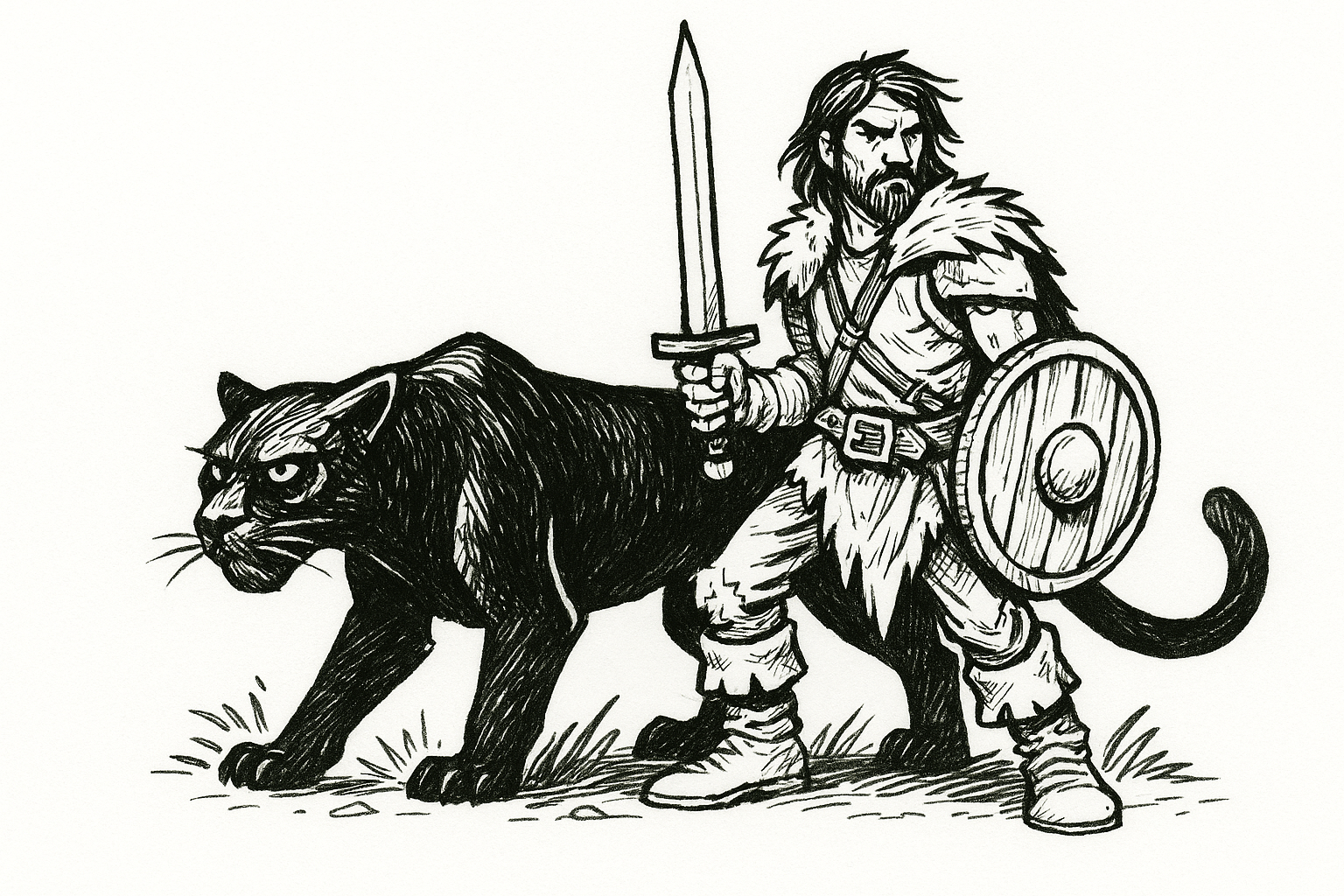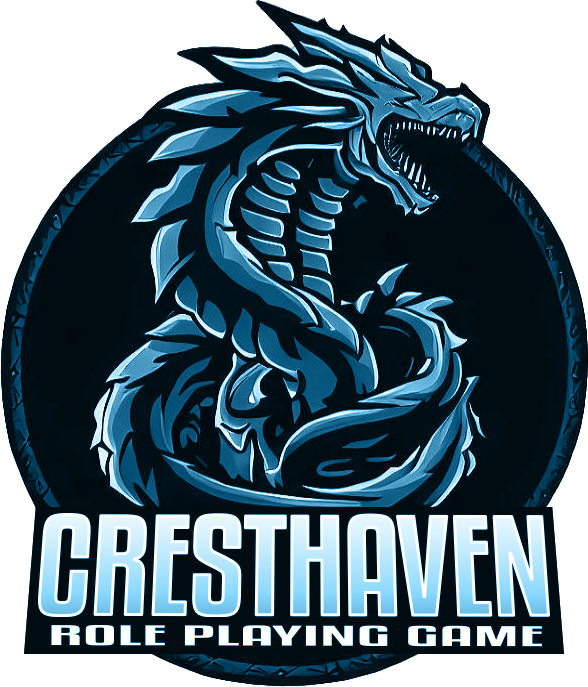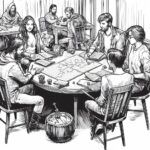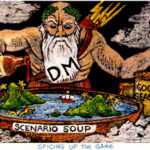
Pets are more than just cute creatures; they’re small animals that forge a special bond with player characters, offering unique advantages in exchange for your care and companionship. This symbiotic relationship means you’ll provide them with food and shelter, and in return, they’ll offer their unique abilities to aid you on your adventures.
Communicating with Your Pet
Your connection with your pet is deep, but communication is often subtle. When you ask your pet a yes or no question, roll a d4. On a result of 1, the pet responds correctly. On 2–4, the response is incorrect or unclear (DM’s discretion). This limited communication adds to the mystery and charm of your bond.
Pet Durability
Pets are helpful, but they’re not invincible. All pets have an Armor Class (AC) of 10 and 1d6 Hit Points (HP). However, stronger or rarer pets have improved durability, abilities, or attack options as detailed below. This means they can withstand a small amount of damage in battle, but they are relatively fragile and can be easily defeated.
Replacing a Lost Pet
Losing a pet is tough, and replacing them isn’t easy. It often requires a difficult task, such as undertaking a specific quest or spending a significant amount of gold. This emphasizes the value and bond you share with your animal companion.
Bonding with a Pet
Want to bring a furry (or scaly!) friend along on your journey? Here’s how to bond with an animal:
A character may have only one bonded pet at a time unless granted otherwise by specific class features, spells, or magic items. Attempting to bond with a new pet immediately breaks the bond with the previous one.
To attempt to befriend an animal, you must make a Wisdom Check against a Difficulty Class (DC) of 20. Druids, with their natural affinity for animals, have an easier time, needing only a DC 17. Remember, your Dungeon Master might adjust this DC based on the animal’s natural disposition or the circumstances of your encounter. Players who describe how they approach and earn the pet’s trust (e.g., offering food, mimicking its movements, showing kindness) may gain advantage on the bonding check, at the DM’s discretion.
Once you successfully bond, you and your new companion will begin a journey together. You’ll be responsible for their care and training, and in return, they’ll offer their assistance and companionship. Pets can provide bonuses to certain skills or abilities, as detailed below, and they’ll also develop their own unique personality and quirks as your bond grows.
When Bonds Break
A pet bond is a powerful thing, but it can be broken. Here are a few ways that might happen:
- Neglect: Failing to consistently provide food, water, and shelter can lead to your pet becoming sick, malnourished, or even dying.
- Abuse: Mistreating your pet can cause them to become fearful or aggressive, potentially leading them to lash out or run away.
- Betrayal: Breaking your pet’s trust—perhaps by forcing them into dangerous situations or sacrificing them for your own gain—can make them disillusioned, angry, and unwilling to follow your commands.
Pets and Combat
If a pet has an attack option, it may make one attack on the player’s initiative, if commanded. This attack does not count as an extra action for the player but is resolved as part of the bonded pair’s turn.
When a ranged attack is made against the player, there is a 1 in 4 chance (25%) that the attack hits the pet instead.
Pets cannot cast spells, open doors, or use tools unless granted specific abilities. Some pets can make basic attacks in combat if the DM allows them to act on their bonded player’s initiative. However, pets are not trained war-beasts unless noted otherwise, and most will avoid combat unless directly commanded or cornered.
DMs may call for a Morale Check (Wisdom Save vs DC 10) if the pet is injured or exposed to loud combat, fire, or magical effects. On a failed morale save, the pet may attempt to flee, hide, or cower until reassured by the player (e.g., spending a turn calming them, or using Animal Empathy).
Pet Sources and Availability
Pets may be purchased in towns, found in the wild, gifted by NPCs, or discovered in dungeons. Unusual pets (e.g., Elementals, Faerie Dragons, Homunculi) typically require a specific location, quest, or faction favor. DMs are encouraged to tie pets into the world’s ecology, economy, and magical systems.
Pets and Their Abilities
Here’s a sample of pets you might encounter in Cresthaven and their unique abilities, including their typical cost and availability. Your Dungeon Master has the final say on what pets are available and any additional rules for them!
Bloodhound
Common | Medium | Unaligned | Beast | Cost: 100 GP
A loyal and intelligent canine with an unmatched sense of smell, perfect for tracking.
- Movement: 40 ft.
- AC: 12
- HP: 2d6 (Average 7)
- Bonus: +3 to Wisdom (Track) checks.
- Special: Can growl (60% chance) when enemies are nearby, alerting you to danger.
- Attack: Bite
- Damage: 1d4 damage
Cat
Common | Tiny | Unaligned | Beast | Cost: 25 GP
Agile and secretive, a cat excels at moving unnoticed and squeezing into small spaces.
- Movement: 30 ft., Climb 20 ft.
- AC: 13
- HP: 1d6 (Average 3)
- Bonus: +1 to Dexterity (Stealth) checks.
- Quirk: Has a tendency to wander off (30% chance).
- Attack: Claws
- Damage: 1d2 damage
Clockwork Mouse
Uncommon | Tiny | Neutral | Construct | Cost: 300 GP
A small, meticulously crafted mechanical mouse, designed for scouting and detecting hazards.
- Movement: 25 ft.
- AC: 12
- HP: 1d4 (Average 2)
- Ability: Can scout up to 100 feet ahead. Grants +2 to Intelligence (Traps) checks or Wisdom (Search) checks if used properly.
- Quirk: Must be wound daily. Makes soft ticking sounds.
- Attack: No direct attack.
Dire Rat
Uncommon | Small | Unaligned | Beast | Cost: 50 GP
Larger than a common rat, this creature possesses surprisingly keen senses for detecting danger.
- Movement: 30 ft.
- AC: 11
- HP: 2d6 (Average 7)
- Bonus: Adds +3 to your Notice passive ability. (This stacks with your Notice score, calculated as Wisdom modifier + Ability Focus (if applicable) + 10. Pets cannot make independent checks unless instructed, but their bonuses apply when assisting or present.)
- Attack: Bite
- Damage: 1d4 damage
Dire Wolf
Rare | Large | Unaligned | Beast | Cost: 1000 GP
A formidable and fiercely loyal companion, the dire wolf is a powerful hunter and protector.
- Movement: 50 ft.
- AC: 13
- HP: 4d6 (Average 14)
- Bonus: +3 to Wisdom (Track) checks.
- Quirk: Can be fiercely protective of its bonded companion.
- Attack: Bite
- Damage: 1d6 damage. On a hit, if the target is a Medium or smaller creature, it must succeed on a Strength Save (DC 10) or be knocked Prone.
Faerie Dragon
Rare | Tiny | Chaotic Neutral | Dragon | Cost: 750 GP
A mischievous, tiny dragon capable of subtle magical effects and playful tricks.
- Movement: 30 ft., Fly 30 ft.
- AC: 15
- HP: 2d6 (Average 7)
- Ability: Grants you the ability to cast one additional caltrop per day.
- Attack: No direct attack.
Falcon
Uncommon (trained hunters) | Tiny | Unaligned | Beast | Cost: 500+ GP
A swift and accurate trained hunter, excellent for scouting and minor attacks.
- Movement: 10 ft., Fly 60 ft.
- AC: 14
- HP: 1d6 (Average 3)
- Note: These trained hunters are expensive to obtain.
- Attack: Talons
- Damage: 1d4 damage
Ferret
Common | Tiny | Unaligned | Beast | Cost: 30 GP
A curious, slender scamp known for its sneaking abilities and playful mischief.
- Movement: 25 ft., Burrow 5 ft.
- AC: 12
- HP: 1d6 (Average 3)
- Quirk: Has a tendency to steal random items (beware, they might even pilfer from other players!).
- Attack: No direct attack. (Mainly for utility/quirk)
Gecko
Common | Tiny | Unaligned | Beast | Cost: 40 GP
An agile climber, capable of scaling nearly any surface with ease.
- Movement: 30 ft., Climb 30 ft.
- AC: 11
- HP: 1d6 (Average 3)
- Ability: Can climb any surface while carrying a small cache (up to 0.5 lbs).
- Quirk: May wander off (50% chance).
- Attack: No direct attack.
Goldfish
Common | Tiny | Unaligned | Beast | Cost: 5 GP
A simple, calming presence that offers a surprising affinity with other creatures.
- Movement: Swim 30 ft. (cannot move on land)
- AC: 8
- HP: 1d4 (Average 2)
- Bonus: +3 to Wisdom (Animal Empathy) checks when interacting with other animals.
- Note: May be fragile and require special care.
- Attack: No direct attack.
Guinea Pig
Common | Tiny | Unaligned | Beast | Cost: 15 GP
A surprisingly vigilant small companion, quick to alert to sudden dangers.
- Movement: 20 ft.
- AC: 10
- HP: 1d4 (Average 2)
- Bonus: Adds +3 to your Notice passive ability for detecting surprise attacks. (This stacks with your Notice score, calculated as Wisdom modifier + Ability Focus (if applicable) + 10. Pets cannot make independent checks unless instructed, but their bonuses apply when assisting or present.)
- Note: Other animals might see it as prey.
- Attack: No direct attack.
Homunculus
Rare | Small | Neutral | Construct | Cost: 1000 GP
An arcane creation, typically resembling a small, winged human, serving its creator with magical utility.
- Movement: 30 ft., Fly 30 ft.
- AC: 13
- HP: 3d6 (Average 10)
- Ability: Grants you the ability to navigate in complete darkness and detect magical auras.
- Attack: No direct attack (its utility is non-combat).
Owl
Uncommon | Tiny | Unaligned | Beast | Cost: 75 GP
A silent hunter of the night, possessing incredibly sharp eyesight and keen hearing.
- Movement: 5 ft., Fly 60 ft.
- AC: 12
- HP: 1d6 (Average 3)
- Bonus: +3 to Wisdom (Search) checks and adds +3 to your Notice passive ability. (This stacks with your Notice score, calculated as Wisdom modifier + Ability Focus (if applicable) + 10. Pets cannot make independent checks unless instructed, but their bonuses apply when assisting or present.)
- Quirk: May fly off (30% chance).
- Attack: Talons
- Damage: 1d4 damage
Jaguar/Leopard/Panther
Uncommon | Medium | Unaligned | Beast | Cost: 400 GP
A swift, silent, and powerful feline predator, excellent at stalking and ambushing prey.
- Movement: 50 ft., Climb 40 ft.
- AC: 14
- HP: 3d6 (Average 10)
- Bonus: +3 to Dexterity (Stealth) checks.
- Quirk: Can be aloof and prefers solitude.
- Attack: Claws
- Damage: 1d6 damage. Can make a single melee attack against a surprised target as a bonus action.
Parrot
Uncommon | Tiny | Unaligned | Beast | Cost: 120 GP
A colorful and intelligent bird, a natural mimic of voices and sounds.
- Movement: 10 ft., Fly 30 ft.
- AC: 11
- HP: 1d4 (Average 2)
- Ability: Can mimic voices and sounds.
- Quirk: May randomly repeat things said by other characters.
- Attack: No direct attack.
Potbelly Pig
Common | Medium | Unaligned | Beast | Cost: 60 GP
A comforting and charming companion, surprisingly observant and with a gentle disposition.
- Movement: 30 ft.
- AC: 10
- HP: 2d6 (Average 7)
- Bonus: +3 to Charisma (Persuasion) checks when interacting with friendly NPCs.
- Quirk: Can be easily frightened and might make a lot of noise.
- Attack: Headbutt
- Damage: 1d4 damage
Tiny Elemental – Air
Rare | Small | Unaligned | Elemental | Cost: 1450 GP
This cloud-like creature has dark hollows reminiscent of eyes and a mouth, and a howling wind whips it into ominous shapes.
- Movement: 10 ft., Fly 40 ft. (hover)
- AC: 14
- HP: 3d6 (Average 10)
- Ability: Can create a small gust of wind, useful for extinguishing small flames (like a candle) or rustling leaves to create minor distractions.
- Attack: No direct attack.
Tiny Elemental – Fire
Very Rare | Small | Unaligned | Elemental | Cost: 1600 GP
A miniature, flickering entity of raw flame, radiating heat and light.
- Movement: 20 ft., Hover 20 ft.
- AC: 14
- HP: 3d6 (Average 10)
- Ability: Can light small fires (e.g., a torch, kindling) and create bright light in a 10-foot radius and dim light for an additional 10 feet.
- Attack: No direct attack.
Tiny Elemental – Water
Rare | Small | Unaligned | Elemental | Cost: 1400 GP
A swirling miniature vortex of water, capable of producing fresh water.
- Movement: 15 ft., Swim 30 ft.
- AC: 14
- HP: 3d6 (Average 10)
- Ability: Can create up to 1 liter (approximately 2 pints) of fresh, clean water per day, enough to fill a flask.
- Attack: No direct attack.





